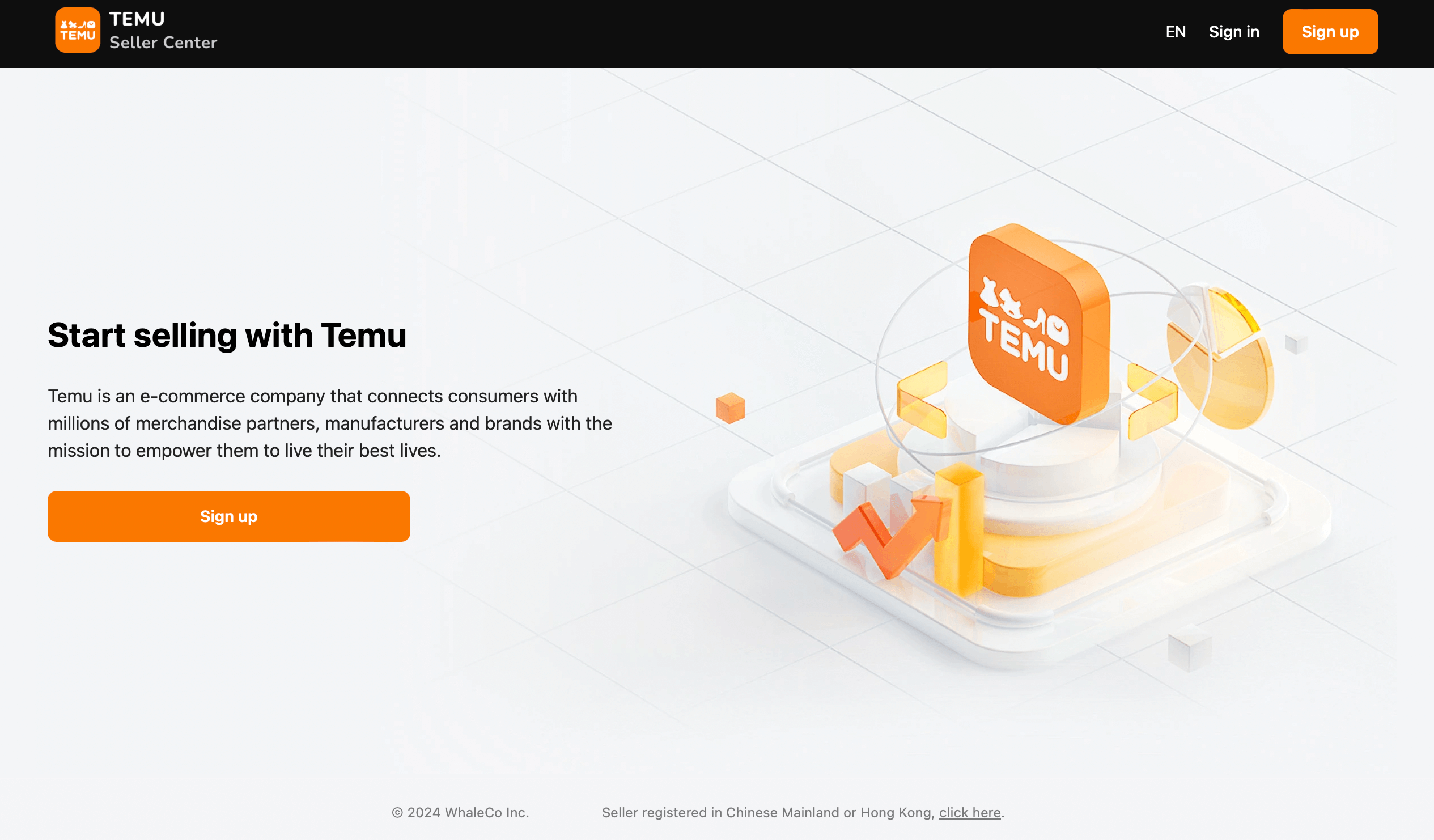Temu has started onboarding U.S. and European brands to its marketplace. Its challenge is that most brands don’t want to be in the same shopping cart with Temu.
Temu is a marketplace of over 300,000 sellers that aims to sell $60 billion worth of goods globally and $20-$25 billion in the U.S. in 2024. According to Marketplace Pulse data, all Temu sellers are based in China. However, while most of its sellers are more akin to suppliers, since March, it started onboarding Chinese sellers with warehouses in the U.S. The shift to sellers with local warehouses has reduced its reliance on the de minimus loophole, improved shipping speed, and allowed it to sell more sizes and weights of products.
Now, nearly two years since Temu’s launch, it wants domestic sellers. It recently hired U.S. and European staff to contact local sellers to join the marketplace (for now, it is invite-only). The pitch is similar to that of AliExpress, Wish, and Shein that came before it — the marketplace has smaller fees than Amazon, few other domestic sellers, massive GMV growth, and Temu is promising to drive sales by “prioritizing onsite placement and traffic-driving features specifically designed to boost sales for new sellers.”
Marketplace Pulse data shows that the first U.S. sellers have already joined Temu.

Shein has been recruiting U.S. sellers for over a year and removed the requirement to operate a warehouse in China in May. But, according to Marketplace Pulse research, it has barely cracked one thousand sellers. When Wish pitched brands more than five years ago, it made little progress, too. Every channel that promises sales volume and diversification is a golden ticket on paper. In reality, even Amazon spent decades trying to convince brands to join.
Temu is not going to add Nike or Samsung, nor DTC darlings like Casper, Glossier, and Warby Parker. Its market positioning and focus are incompatible with theirs. The only caveat is that Temu could act as an effective outlet store for those brands (if not for potential reputation risks). Most of its sellers will instead come from the pool that sells on Amazon. The marketplace expansion is less about selling iPhones and more about carrying Amazon’s best-selling garlic press.
Amazon sells most of what Temy carries, but Temu has little of Amazon’s supply. Temu wants domestic brands to expand beyond an app for cheap goods from China — that has worked so far but has a ceiling Temu will soon hit. But as it grows and pivots in the eyes of shoppers, the journey to align with brands is even longer. Yet, it is not impossible, as TikTok, which faces a potential ban or divestiture and thus has seemingly more reputational risk attached, has become a keystone for every brand’s marketing.

